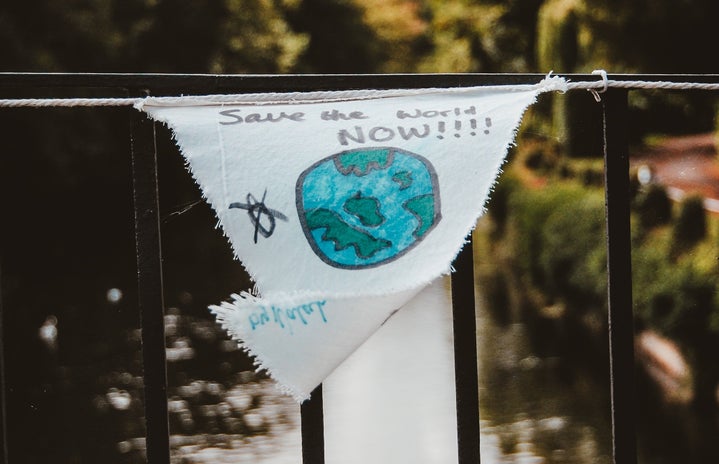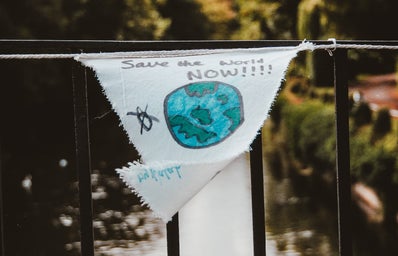Regardless of where you are on the political spectrum, you probably know that something is happening in Venezuela right now, but chances are you don’t know exactly what. It’s easy to get caught up in the media circus over Trump’s involvement and the disturbing news coming out of the South American country and to gloss over the real issue at stake: The lives and rights of the Venezuelan people.
Protests and rallies over the legitimacy of the Maduro presidency erupted on 1/23, the historically important date that of the 1958 Venezuelan coup against dictator Marcos Perez Jiménez. Political incumbent Juan Guaidó declared himself interim president in opposition the regime of current president Nicolás Maduro There are layers to this situation that are not immediately obvious – to many Venezuelans, the Maduro regime represents economic turmoil and over a decade of broken promises and corruption from the remnants of the Chavez government. Maduro, originally elected in 2013 and even then accused of election fraud – fewer than half of registered voters were allowed to vote in subsequent re-elections – appointed cronies to the national assembly after the opposition coalition won 56% of the vote and a two-thirds majority in the national assembly, thus rendering his government a dictatorship. An inflation rate of one million percent and virtually nothing put into support for the local economy has resulted in crises such as University Hospital in Caracas having the power bill cut and patients dying in their hospital beds.
Photo from Anchorage Daily News. Sign shows the skyrocketing prices of basic food such as eggs and cheese.
The past few weeks have been moments of history in the making for Venezuelan with the possibility of new leadership from Guiadó, who promises to bring democracy to the country and to finally acknowledge the humanitarian crisis the Maduro government denies is happening. Other South American countries such as Brazil, Argentina, Chile, Paraguay, Ecuador, and Colombia voiced support for the Guiadó presidency, whereas Bolivia and the socialist government most closely linked to Maduro’s, Cuba, came out in support of Maduro. The United States has backed Guiadó and declared Maduro illegitimate, whereas Russia is aiding Maduro. The Bolivian and Cuban governments see Guiadó’s interim presidency as a United States puppet government, and as a college student in America. I have seen a lot of my leftist peers misguidedly agree. It’s understandably complicated when Venezuela’s history is so wrapped up in the international market for oil, which involves both the United States and Russia, but we have to highlight that this is not about left-wing versus right-wing, it is about the everyday citizen versus a dictatorshop. Beyond questions of international aid and politics, there is the day-to-day reality of everyday people starving, unable to get proper medical care, and being murdered in the street for exercising their right to protest.
Instead of simply reading news articles, I want to implore Americans who don’t feel like they understand the nuances of the political situation to actually open dialogue with Venezuelans about their country and think about it from a standpoint of empathy instead of political argument. Mabel Pimentel, a student from Caracas interviewed by Her Campus, said about Guiadó’s presidency that “I would want everyone to know that what is happening in Venezuela is completely constitutional. We are following Article 233 of our constitution which states under a vacancy of power in the presidency the National Assembly president will have to call for elections. We have a vacancy in the presidency because Maduro has not won a fair election since Chavez died.” On a more personal note, Pimentel continued: “All we want is freedom and to bring Venezuela back to what it once was, when and how we are going to do it, we still don’t know. Maduro has created division between classes and anger and violence…After the protests of 2017, when so many students died, nothing came of it. But now we seem to be hopeful because we can see the light at the end of the tunnel but we still need a lot of help in every aspect, socially, health, financially, and that is just to name a few, we need all the help we can get to rebuild our country from the ground up.”
Yet though Pimentel’s statement challenges the narrative Nicolás Maduro paints of saying “We are not beggars,” when United States foreign aid comes in and denying there is a crisis at all, it’s also important not to victimize or patronize the country and its people. “What people don’t realize is how strong the people of Venezuela are to still stay so strong and hopeful despite everything that’s in their way. They’re doing their absolute best,” Dylan Imperato, a Venezuelan-American freshman at New York University said. “When I was in Colombia helping my family settle after leaving Venezuela to we happened across dozens of families that were walking from Venezuela to Bogotá.” This walk, simply from Caracas let alone any other part of the country, would be approximately 1204 kim (871 miles). “One family we saw was a father carrying two suitcases and a mother carrying their unborn child. Sometimes your best just isn’t enough. I’ve lost family because of the instability in Venezuela and it makes my blood boil to see people pretend like this isn’t happening. There isn’t a conspiracy. People are dying.” To Americans supporting the Maduro regime, Imperato said “Grow up.”
Photo from El País. Sign reads “We’re hungry.”
Neither person interviewed is representative of the entire population of Venezuela, but when a country is mired in a humanitarian crisis – a quick look at the Human Rights Watch’s page for Venezuela shows the torture and killings in the recent anti-government protests and the enormous human cost of the mass exodus to Colombia and Ecuador, among countless others. As I write this, the Maduro government is attempting to block foreign aid carrying food and medicine coming in over a bridge from Colombia. Statistics, ideologies, and arguments are one thing, but basic regard for human life is another.



